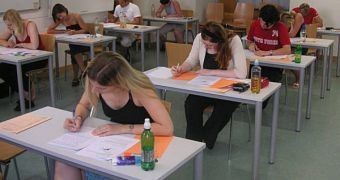According to a new scientific study, it may be that longer, high-pressure aptitude tests do not necessarily imply people will get lower grades than in shorter ones. If any, chances are that the people taking the test will actually score better, as the brain finds its working rhythm, and starts tackling the issues at hand faster and more effectively. The results of the investigation were published in the American Psychological Associations' Journal of Experimental Psychology: Applied.
“The experience of fatigue during testing does not appear to be, in and of itself, detrimental to test performance,” Phillip Ackerman, PhD, and Ruth Kanfer, PhD, both study co-authors, said. According to current knowledge, if students, for example, take extensive, multi-hour tests in one go, they may become increasingly fatigued, which could in turn lead to a significant decrease in their performances. But the new paper has showed that, while indeed the participants become more tired, they also tend to maintain the same level of efficiency.
“Fatigue appears to be more about the individual's expectations of and prior experience with testing than about the length of the test. One possibility is that more students respond to feelings of fatigue by increasing rather than decreasing their effort,” Ackerman said. In other words, the basic conclusion of the research is that some people, when dealing with long and stressful examinations, are simply more likely to experience fatigue than others.
Long high-stakes tests are currently very valued by schools, employers and certification boards, and the researchers hope that now students, knowing that performance does not decrease with time, may be encouraged to attend them in larger numbers. This would create benefits both for them and their future employers, and could ultimately have a large influence on the entire economy, as more skilled individuals occupy key positions.
Additionally, the experts add, students should practice long tests at home first, and complete them in a single stay. This may give them an idea of what the actual test is really like, and will allow participants to become accustomed to the conditions beforehand, and focus more on the questions during the examination. The study was conducted on 239 freshmen college students in Atlanta, who participated in the SAT Reasoning Test.

 14 DAY TRIAL //
14 DAY TRIAL //